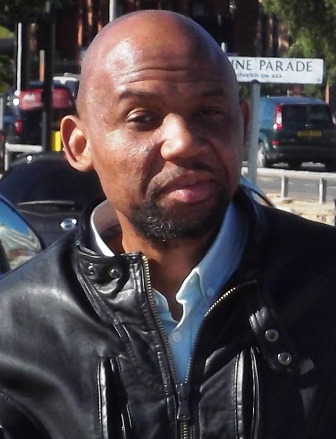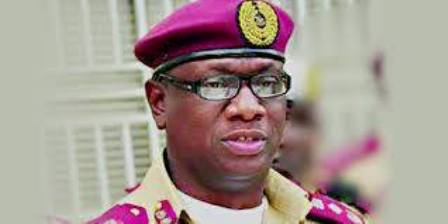By: FEMI OWOEYE
Now that the Federal Road Safety Commission (FRSC) has settled down and all legal factors trying to extinguish them got snuffed out, the commission seem to have forgotten too soon the battle that was lost and won to bring them to where they are today.
Honestly, lots have been achieved in standardising issuance of driving license, vehicle plate numbers and more. But certain elements are smearing the commission’s image by collecting bribe from drivers of commercial vehicles. Just like the police! The heart of Prof. Soyinka would bleed on hearing this. Even the current Corps Marshal, Boboye Oyeyemi must be angry about this, for he was part of the real FRSC disciplined generation. As if the above is not enough, hundreds of Nigerian qualified drivers wait till eternity before receiving their driving license. Many would never get theirs until expiration.
Many driving licenses, which according to FRSC record, had arrived, are missing among the new and subsequent arrival lists. No credible explanations are ever given about such cases. Were they lost on transit? What could the poor officers working at the state office do? “We’ll send a memo to Abuja regarding that”, one of the drivers concerned was told. Up till the expiration of the License, such driver will continuously return to the FRSC office to get an extension stamp on his or her impermanent driving licence. This problem started since the driving license procurement centre became centralised in Abuja.
When the new driving license regime started and the production centre was at Ojodu, Lagos, you could get your license in less than a month. What has changed?
No doubt, Nigerians deserve the real FRSC set up by its founders. At least the FRSC we all had before the anti-partition victory, achieved during Olusegun Obasanjo’s first tenure as a civilian president. I remember warning in my column then that General Hananiya, the then Corps Marshal, should not be carried away by the victory, as, more than ever before, the commission would be faced with many more challenges.
I also cautioned that what Nigerians expected from a post partition FRSC was nothing short of the standard set by the Soyinka/Agunloye-led FRSC as commissioned in 1988 – what I used to describe as SSR (Soyinka Safety Revolution). The standard achieved then was no mere PR efforts. It was real and practical. Nigerian travellers and motorists were full of testimonies. I’ll site just three examples.
One: To uncover the licensing offices who issued drivers license to people, who had never moved a car, Dr. Agunloye’s team did a real detective work. They went to town with a hired studio cameraman, took a passport photograph of a disable, a beggar named Okumufu, who was them based at the old and hellish Oshodi in Lagos. With the photo, a plain cloth FRSC marshal approached a licensing officer at Oshodi Licensing Office. All that was requested was a sum of N80 and the license was issued. The unpatriotic licensing officer did not demand to see the owner. Neither driving test nor vision was requested. As soon as the money was paid, the then banned booklet license was issued. And the game was up. The culprit was nabbed. That was a major achievement. The story was published in the defunct AUTOMAG magazine, which I edited then. That was 1990/91.
Two: The Soyinka/Agunloye FRSC spared nobody, military or civilian, rich or poor, while on duty. The late Dr. Tai Solarin once narrated to me his encounter with the marshals. On his way to deliver a lecture at Ibadan, Dr. Solarin’s driver was arrested for over speeding. The marshals on duty recorded his car number and gave the driver a thorough warning
Three: In 1990, I made a trip from Lagos to Abeokuta by a commercial bus, which had excess passengers on board. FRSC marshals caught the driver, ordered the three passengers to get down and insisted that the driver refund their fares and also pay each of them an inconvenience allowance of N3.00, which was some reasonable amount then. These were just few of many testimonies that I cannot forget soon. Interestingly, all were achieved with absolutely inadequate resources.
FRSC was highly on the breadline. President Ibrahim Babangida himself knew then that the commission was synonymous with discipline, determination, revolution and commitment. And it became an envy of all other militarised bodies in the country. Then I knew that the commission would eventually be merged with the police. A political matter, it was. The then Inspector General of Police, obviously, did not like what was going on. As Nigerians, at last, had a body to compare the police with in terms of indiscipline and corruption. So efforts were intensified to withdraw the commission’s independence.
To discourage Soyinka and his team, FRSC was starved of fund. At a point, the commission’s poverty became a national embarrassment. They could not pay house rents. Landlords gave them quit notices at Aba, Ibadan and Benin for reasons ranging from inability to pay annual rents( that were not more than N96, 000) to rent increase. For some years after take-off, many of the commission’s vehicles, 80% of which were bought for the Nigerian Police Force during President Shehu Shagari regime and handed over to the commission, were dilapidated. It is even on record that when the Federal government’s allocation for the commission would not come, it was Prof. Soyinka, who made available to the commission a cheque of N100, 000 drawn from his personal account. Eventually, Soyinka left the commission. Agunloye too disengaged. The police achieved their objectives.
To the chagrin of many Nigerians, FRSC was merged with corruption. Inevitably, the erstwhile discipline body became corrupted and infected. Prof. Soyinka would have been quite sorrowful. Well-meaning Nigerians, however, continuously pressurized the authority to set FRSC free. Now the battle has been lost and won, what safety conscious Nigerians expect is for the Corps marshal and his team to go back to the basics.
Now that one of the old Brigades, Mr. Oyeyemi, is at the helm of affairs, what used to be plain-cloth monitoring units, should be back on the road to arrest regular marshals, who are presently tarnishing the image of our internationally acclaimed FRSC. The FRSC in-house journal, The Owl, should be resuscitated. Nigerians expect today’s FRSC to beat the records of its founders. Anything short of the standard we used to know is unacceptable.
And being part of the first generation of this commission, the current FRSC boss, Oyeyemi is in the best position to return it to its glorious era. It’s time to urgently put the house in order. It feels odd and sounds absurd seeing FRSC road Marshals collecting bribes from drivers of commercial vehicles, who wear no seatbelt, disobey speed limit, and even use mobile phones, while on high speed. Unlike the police, though, the Marshals do not collect the money openly. What they do is collect paper(supposed passengers manifest) in between of which Naira notes are kept.

They open the papers, collect the cash, stuff it in their pocket and return the paper immediately to the driver. To also avoid being noticed, they stay far behind the pulled up commercial vehicles. No. This needs to STOP. Soon. If not, enemies would rise again. They would have enough reasons to make FRSC a department in the Federal Ministry of Works or Health. And the national Assembly that passed your freedom bill would simply reverse it.




